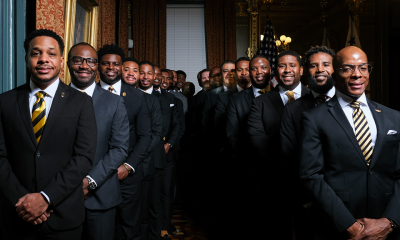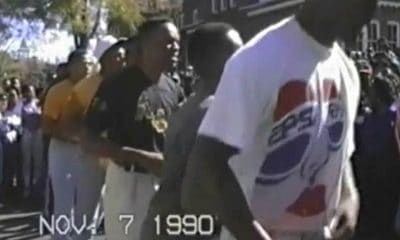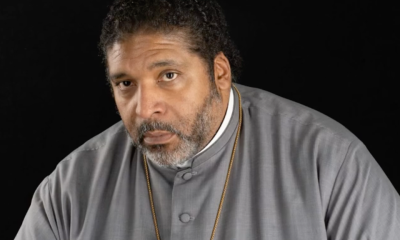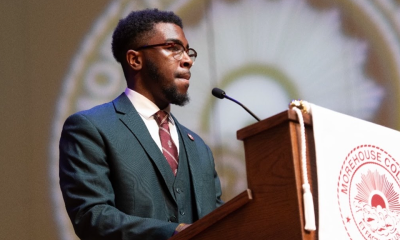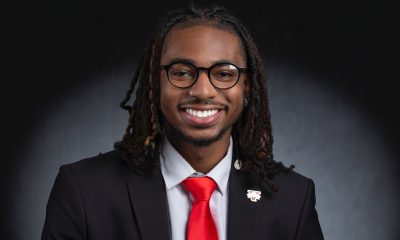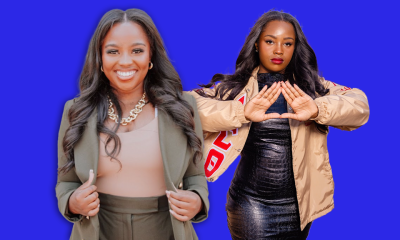Alphas
This Brother of Alpha Phi Alpha from Clemson is using Blockchain Technology to Eliminate Ticket Fraud
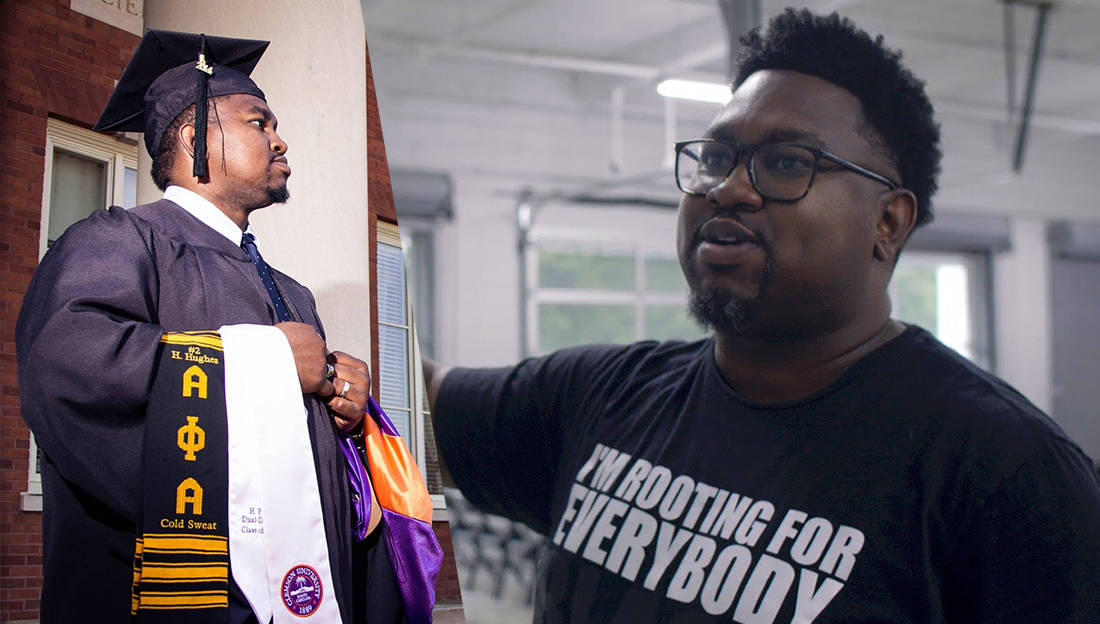
Have you ever bought event tickets online and worried about getting scammed?
It turns out that there are a lot of scammers out there who sell fake tickets to sports games and music concerts but they need beware because Harold Hughes, the founder of the technology company Bandwagon is using the same blockchain technology that keeps cryptocurrencies like Bitcoin safe and applying it to event tickets so you don’t get scammed the next time you buy football or Beyonce tickets.
Harold, a Spring 2006 initiate of the Pi Alpha Chapter of Alpha Phi Alpha at Clemson, has been recognized by Google and even been featured in the hit Gimlet Media podcast The Pitch for the way his company is using tech to change the way we all purchase tickets online. Since he just so happens to be a member of the prestigious Alpha Phi Alpha fraternity we at Watch The Yard were able to pull some strings and get and interview with him about his product, how being a brother of a Black fraternity helped him get to where he is today, and what he thinks Black greeks who are established in tech need to do to help the next generation of tech powerhouses.
Read the full interview with Harold below:
What is the best way to explain Bandwagon to someone who has never used it before?
To the average fan, you won’t know that Bandwagon is involved when you buy your concert or basketball game tickets, but that’s by design. Bandwagon is a B2B company with solutions that work with teams, festivals, and other event organizers to help eliminate ticket fraud for their events. Fans everywhere—seriously, one of our newest customers is an international film festival in Johannesburg—will be able to spend their hard earned money on tickets and have peace of mind that the tickets will work and that the event organizer is genuinely working to make their live event experience better.
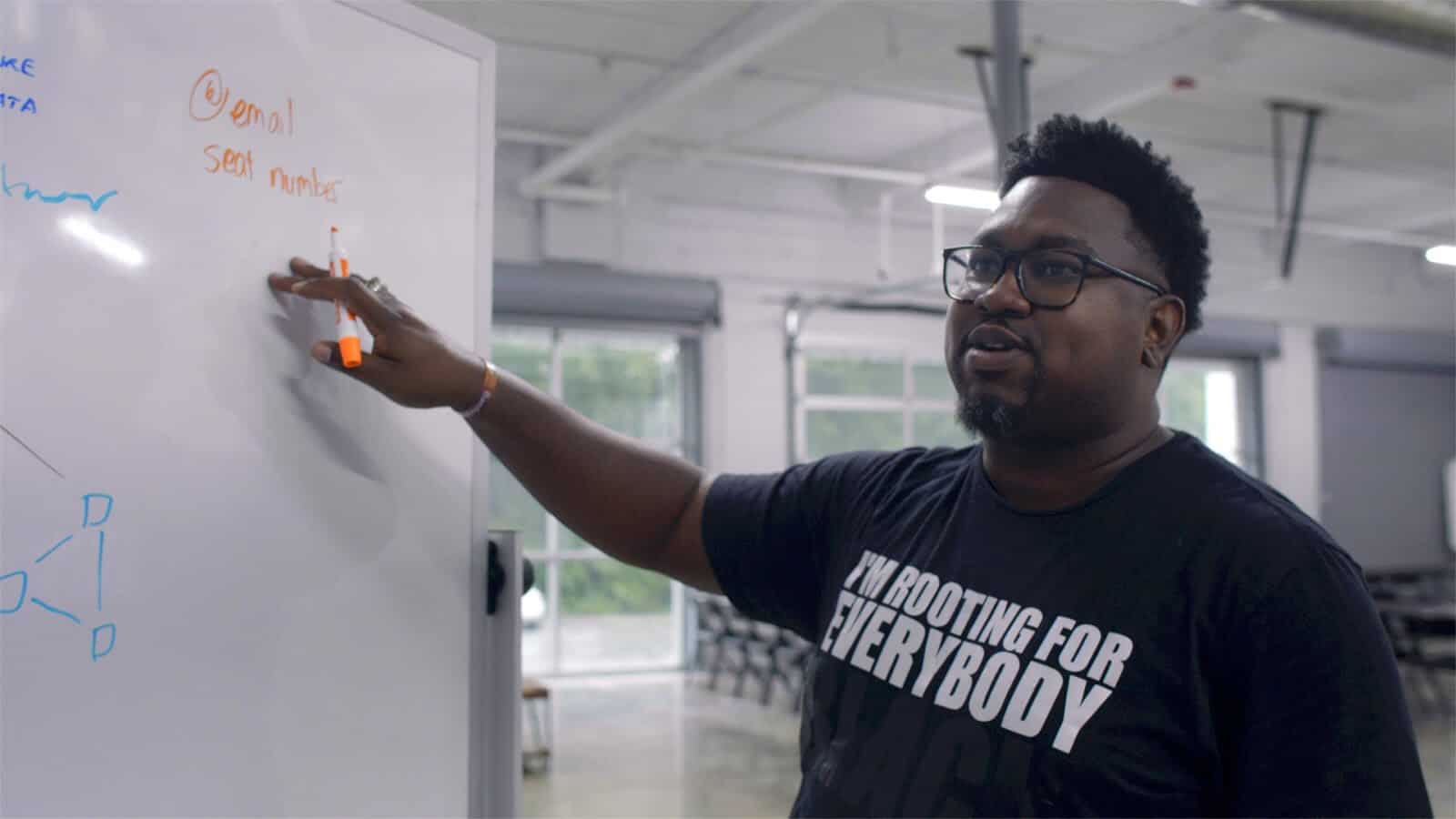
What drew you to Alpha Phi Alpha? How do you think being involved with greekdom as a college student helped prepare you for what you do now?
When I got to Clemson in the Fall of 2004, there’s so much that I didn’t know. I was the first person in my family to go to a 4-year institution and honestly, I don’t think my high school study habits translated well to the college environment. Fortunately, as I got more involved on campus and in student organizations, college life got better, and I felt more acclimated academically and socially. As I grew up, several of my friends’ parents were Greek. But seeing as how no one in my family was, I knew I was coming in and could be completely objective if I decided to go that route. The members of the Alpha chapter at Clemson (Pi Alpha) just seemed to be everywhere. Whether it was former athletes or leaders in student government to RAs and leaders in administration—I just felt like their impact in those organizations started to shape my experience as a student. When I decided I wanted to go Greek, I knew I wanted to be part of an organization that would help me become a better student but also an organization that I could contribute and give back to.
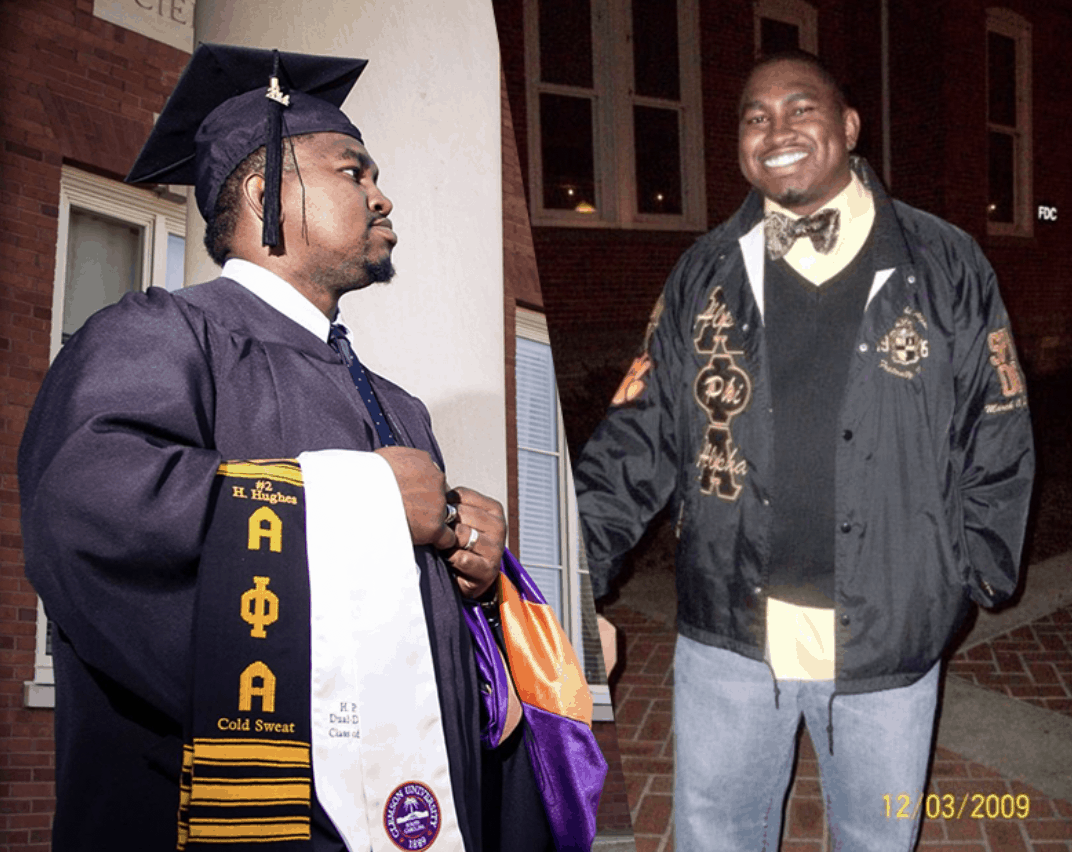
I think that being in a Fraternity really helped me understand the foundation of friendship, brotherhood, and sacrifice. My chapter brothers and I went through some real situations in my 4 years there, and regardless of the outcome of each situation, it always brought us closer together—we knew we were never truly alone. I think about this road to entrepreneurship, building my company in a small town in the Southeast, and as a Black Founder often feeling isolated from my peers that are also in the trenches but thanks to the lessons I’ve learned about how friendship, true brotherhood, and what it means to sacrifice, I’m motivated to persevere.
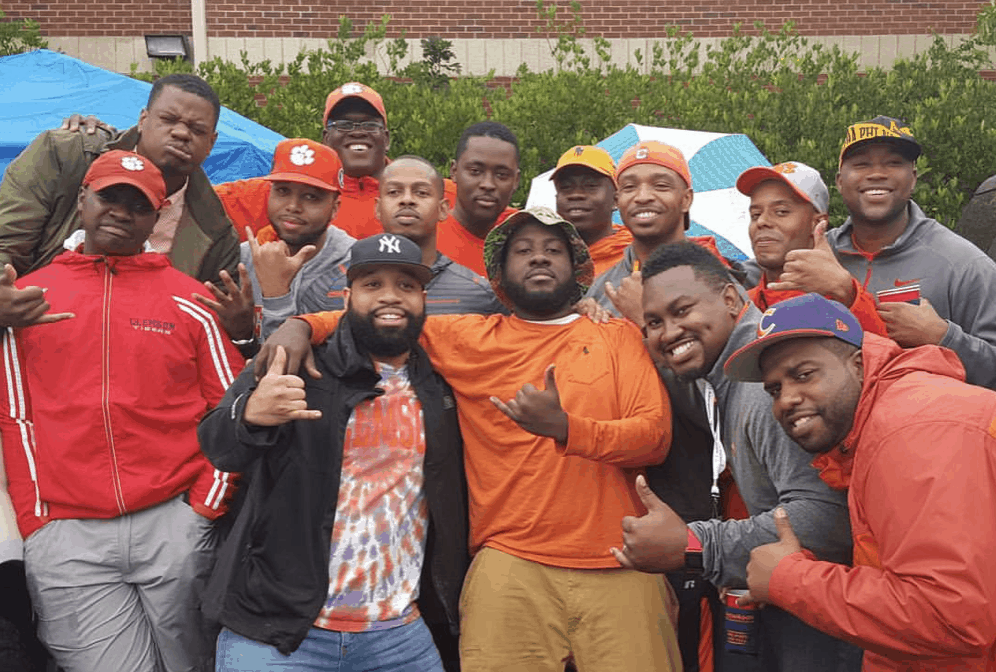
What challenges do you believe you face as a black founder and how do you overcome them?
As a Black Founder, I’ve personally felt the challenge of not having access to early capital as we got started. I don’t say that to mean that only people of color lack the relationships or resources to start companies but the numbers are out there. When you look at the percentage of companies can to raise capital AND how long it takes them, you’re likely to see a Black Founder do more with less simply because we have to. At the same time, I think that navigating networks for finding early employees and investors is a challenge. Everyone knows that your first employees/team members are likely friends, family, or people that you’ve worked with so if your circle isn’t diverse culturally, socioeconomically, or by gender, your access to funding is likely to be impacted.
I’m very fortunate that I attended Clemson University and in my involvement in student organizations, alumni groups, and even my job out of college allowed me to network and build real life-long relationships with people who have truly shared and extended their networks to me. I think that’s the key to success as a Black Founder—staying truly authentic to yourself and your beliefs but also finding ways to engage and connect with allies that are willing to extend a hand—and in some cases, their privilege—to you.
What is the biggest sacrifice that you have made in starting Bandwagon?
Without a doubt, the biggest sacrifice that I’ve made in this journey has been spending the first 6 months of this year away from my wife and son. As 2017 started to come to an end, I really felt like we were on to something, but we needed some help. While thinking of ways that we could continue to grow, we were invited to the Capital Factory Accelerator in Austin, Texas.
At the time, my son had just turned one, and my wife and I were in a tough spot financially as the tenants in our rental property (previously my bachelor pad and first home that I bought as a 25-year old) told us that they would not be renewing in 2018. The idea of trying to manage a second mortgage while not bringing in an income was added pressure to a complex situation. My wife and I ultimately talked and decided that doing the 6-month program was the best thing for the company and subsequently our family. However, without an income, the idea of finding housing and affording living expenses in Austin for 6-months was impossible so we did what we had to do. I sold my townhouse, shipped my car to Texas, and got a room in a friends apartment (all that I could afford) and dove in 100% to Austin. Only seeing my family for 4 or 5 days a month for that long was really tough on us but the program proved to be even more valuable than I expected, and I’m thankful to be on the other side of it.
What’s your favorite quote and what does it mean to you?
I’ve heard this quote in multiple ways but my favorite version is, “The true sign of greatness is when all things before you are obsolete and all things after you bear your mark”. I think Dave Chappelle said it talking about the impact of Richard Pryor on comedy as a whole. When I think about how I apply it to my life outlook, it inspires me to do my best to leave a mark on this world. It’s important to me to be a good husband, a good son, a good dad, and a good friend and as I strive to be those things, I believe that I’ll be able to leave things better than I found them.
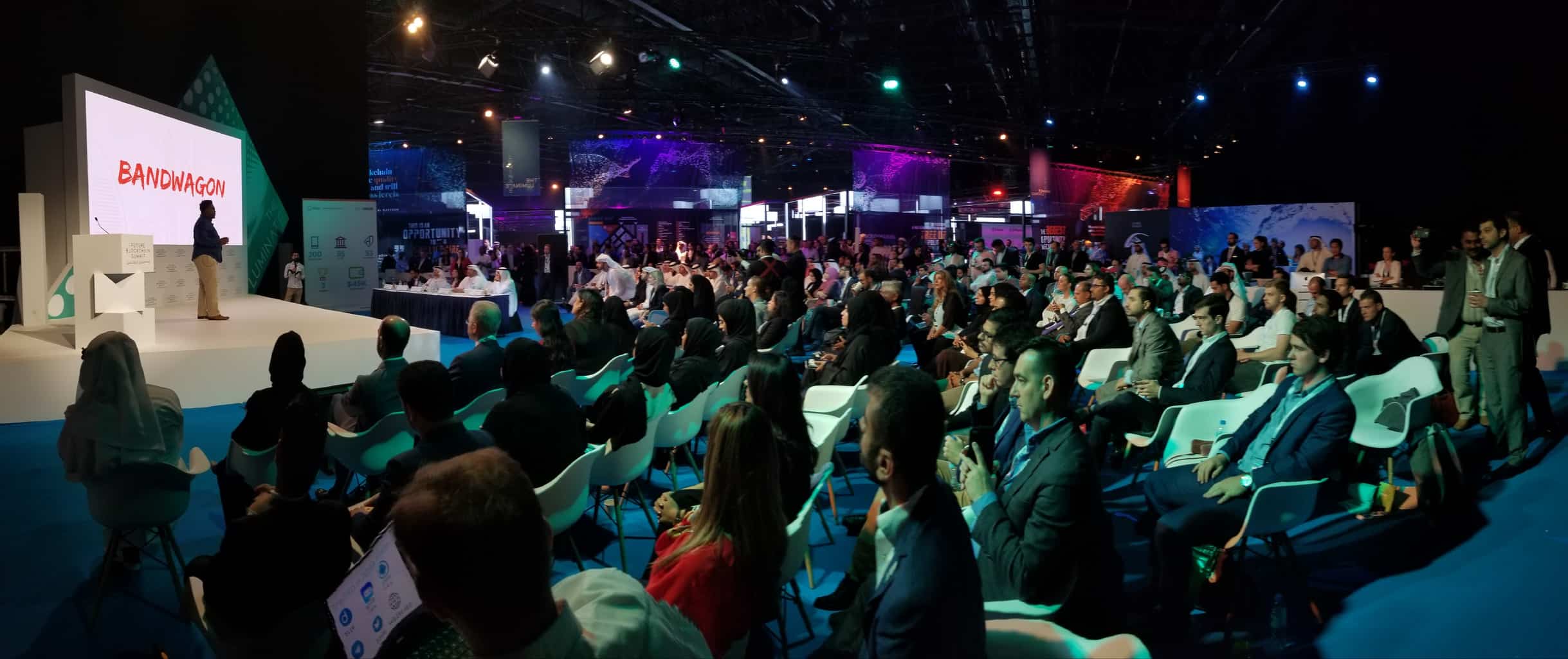
As someone who created a startup, what are some skills you think people who are undergrads or recent grads should pick up in order to make themselves more successful as entrepreneurs?
I think that the most important skill that someone can acquire as they begin the startup journey is having a collaborative mindset. Often, people go into relationships thinking that someone might steal their idea or rip them off, so you start to see people ask others to sign NDAs (Non-Disclosure Agreements) earlier and earlier in the process. I think that this is not only a bad way to begin a relationship, but I also believe that you’re limiting the information and resources that your early-stage startup desperately needs. When I started Bandwagon, I told everyone that I could so that as they came across articles or news that pertained to my industry, they’d share it with me. People took it a step further! Not only were they sharing industry news with me but because I made them feel like they were part of the journey from the beginning (because they were), they offered me advice and suggestions on product features which helped us rapidly move through the customer journey and product roadmap. When you factor in what I said earlier about finding a way to gain access to more networks, the key is to listen and collaborate in order to find success earlier and more often.
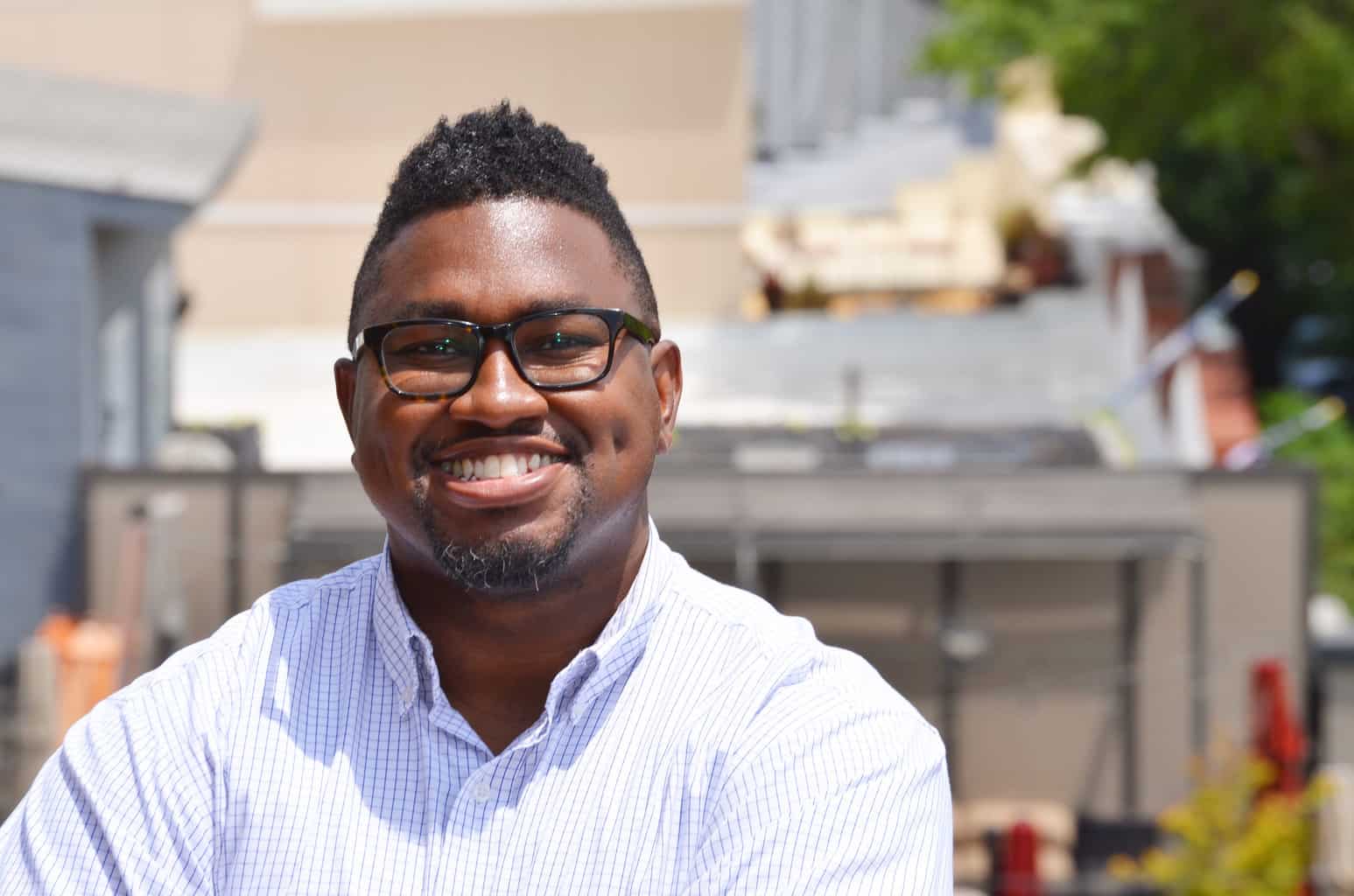
How has mentorship had an impact on your career over time? Who are some mentors who have helped you get where you are at today and what did they teach you that stood out?
My mentors have had a truly incredible impact on my life and the trajectory of my career. From Mark Morgan, one of my earliest bosses while still in Corporate America, to Tim Reed, who made an introduction to Greg Smith, our first angel investor, mentorship has been a real difference maker for me. I think about Kwame Anku, CEO of Blackstar Fund, as he was the first person that I saw that looked like me sitting across the table as we started fundraising, and think about how he has been there from the beginning as a coach for my startup to offering friendship to me as a new dad.
I think that there are lots of lessons that my mentors have taught me over the years but the biggest lesson has been the importance of accountability to oneself. We’re all in relationships where you do things because someone expects you to do it but I’ve found true joy in accomplishing goals that I’ve set simply because I expect myself to achieve it. I also think that everyone should consider creating a circle of peer mentors to help guide you and support you. For that I’m part of a group called YEB (or Young Exec Board) that receives the same monthly updates that my investors do—like my childhood friends affectionately called “The Crew” who I can trust to check in with me as I make progress to my goals, to fellow entrepreneurs like Sheena Allen, Clarenece Bethea, and Denise Woodard that I can call or text at any time of day when I need to bounce ideas or get a sanity check. Having peer mentors in your life is important, and I think that I think it’s an often overlooked type of self-care.
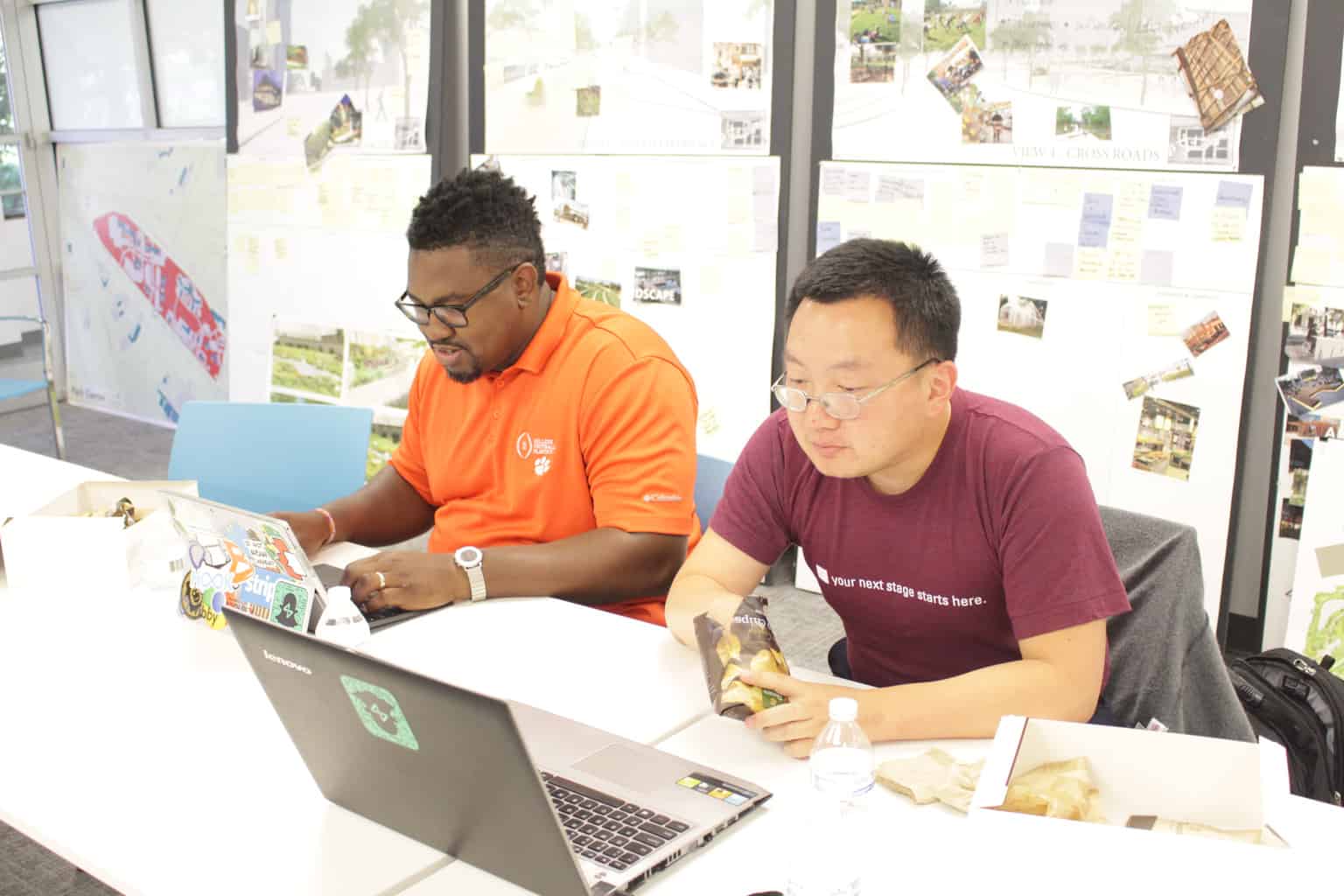
What can Black greeks who are established in tech-related careers do to help the next generation?
INVEST! The truth of the matter is, everyone isn’t cut out for entrepreneurship, but that doesn’t mean that you can’t play an important part in the startup ecosystem. As I started my company, I often thought about the PayPal Mafia, a group of early PayPal employees and founders that ultimately went out to touch everything impacting us today by starting or investing in companies like Palantir, Tesla, LinkedIn, Netflix, YouTube, Facebook, Airbnb, and Uber. I think about that and say, “What if just one of the members of the PayPal Mafia were Black or a woman? How would the world be different?” The answer to that question is why I’m building Bandwagon and why I encourage so may Black greeks to invest in early-stage startups, especially ones that are led by a diverse team. Because when Facebook got started, no one called anyone that looked like us. Because when Google got started, no one called anyone that looked like us. I think that it’s incredibly important for Black greeks to be leaders in the investment community to help fund companies that will impact and shape our future but also to change and eliminate the wealth gap that exists in this country between people of color and our counterparts.
Share this on Facebook if you think this Alpha deserves to go VIRAL!

